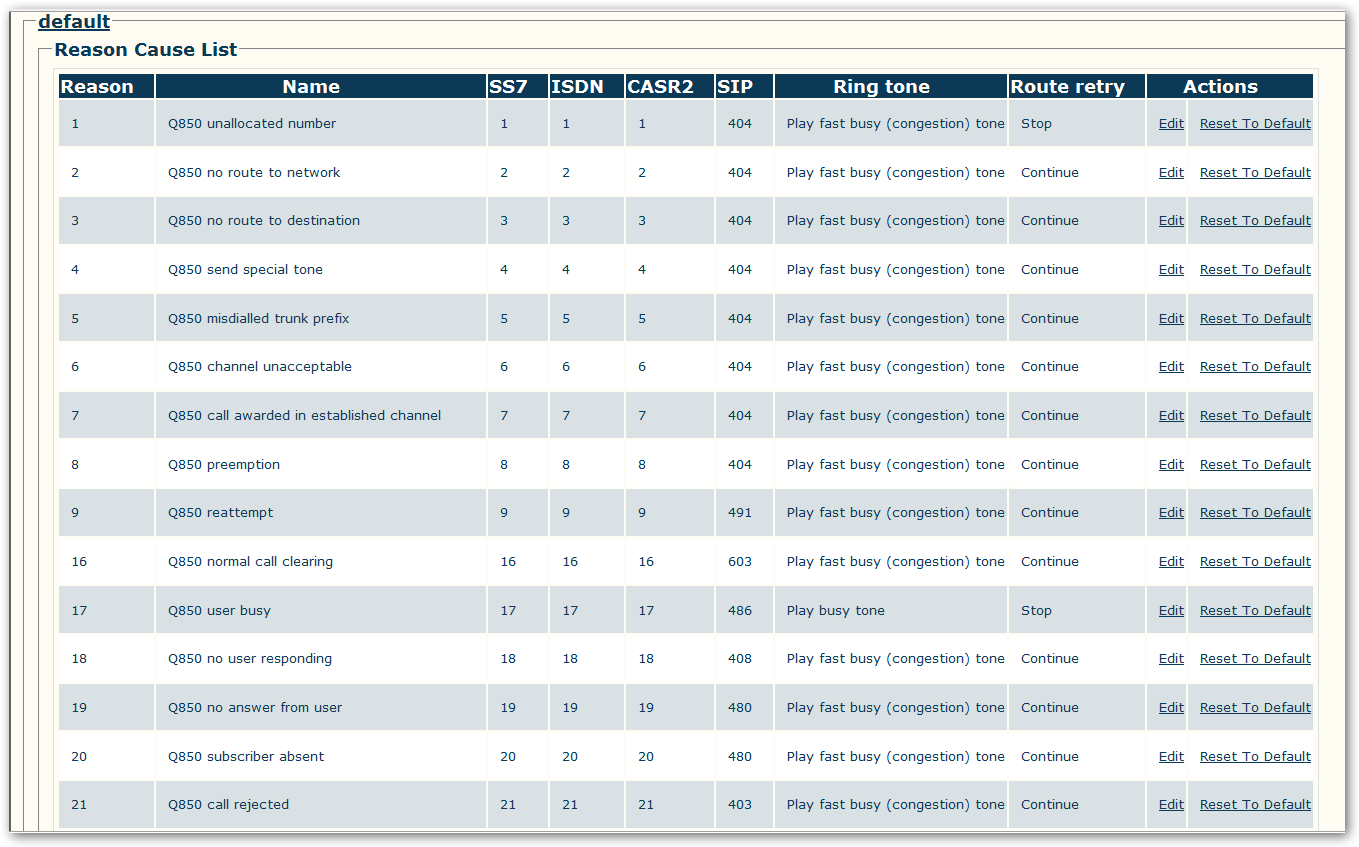Termination cause codes
From TBwiki
(Difference between revisions)
m (→Case for the 603 DECLINE and 200 TOOLPACK NORMAL) |
|||
| Line 12: | Line 12: | ||
=== Case for the 603 DECLINE and 200 TOOLPACK NORMAL === | === Case for the 603 DECLINE and 200 TOOLPACK NORMAL === | ||
| − | The TOOLPACK_NORMAL reason code is mapped to the 603_DECLINE reason code. The reason is the following: | + | The TOOLPACK_NORMAL reason code is mapped to the 603_DECLINE reason code. The reason for this is the following: |
| − | A SIP BYE does not include a cause code, so on normal call terminations, | + | A SIP BYE does not include a cause code, so on a normal call terminations, TMedia will send a BYE on SIP, and internally, a 200 TOOLPACK_NORMAL (in the logs and the CDRs). When the call terminates unexpectedly, for example after a ACM, but before a ANM, Tmedia will still send a BYE on SIP, but internally, it will log a 603 Decline (REASON_CODE_603_DECLINE). |
| − | + | ||
| − | + | ||
Revision as of 14:41, 24 April 2018
Starting from release 2.5.55 these cause codes can be modified with the Web portal in
Profiles -> Edit -> Reason Cause Mapping
Complete list of Reason Cause mapping between the protocols:
Case for the 603 DECLINE and 200 TOOLPACK NORMAL
The TOOLPACK_NORMAL reason code is mapped to the 603_DECLINE reason code. The reason for this is the following:
A SIP BYE does not include a cause code, so on a normal call terminations, TMedia will send a BYE on SIP, and internally, a 200 TOOLPACK_NORMAL (in the logs and the CDRs). When the call terminates unexpectedly, for example after a ACM, but before a ANM, Tmedia will still send a BYE on SIP, but internally, it will log a 603 Decline (REASON_CODE_603_DECLINE).
